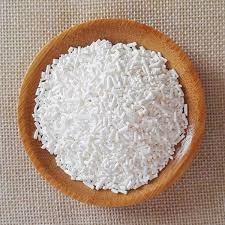
emulsifier 481 in bread
The Role of Emulsifier E481 in Bread Production
In modern baking, achieving the perfect loaf involves a delicate balance of ingredients, techniques, and science. One ingredient that has gained popularity, particularly in commercial bread production, is emulsifier E481, also known as sodium stearoyl lactylate. This emulsifier plays a pivotal role in improving the texture, shelf life, and overall quality of bread, making it a staple in many industrial baking processes.
The Role of Emulsifier E481 in Bread Production
Additionally, E481 contributes to the elasticity of the dough. The presence of this emulsifier allows the dough to retain gas more effectively during fermentation, which is crucial for achieving the desired volume and airy crumb structure characteristic of high-quality bread. By improving gas retention, E481 not only enhances the rise of the loaf but also helps maintain its shape during baking, resulting in a more aesthetically pleasing product.
emulsifier 481 in bread

Another significant advantage of incorporating E481 into bread recipes is its ability to extend shelf life. The emulsifier helps to keep the bread moist longer by retaining water within the dough. This moisture retention is essential in preventing staling, a common problem in baked goods that can lead to a dry, unpalatable product over time. With E481, bakers can produce bread that remains soft and fresh for an extended period, reducing waste and improving customer satisfaction.
Moreover, E481 offers benefits in terms of handling and processing. The emulsifier contributes to improved dough machinability. For commercial bakeries, where large quantities of bread are produced, efficient mixing, shaping, and baking are essential. E481 aids in the formation of dough that is easier to knead and shape, optimizing production processes and ensuring a consistent end product.
It's worth noting that while E481 is advantageous in commercial baking, its use should be approached with caution in artisanal baking, where traditional methods and natural ingredients are often prioritized. However, as consumer preferences evolve, many artisanal bakers are also starting to experiment with emulsifiers to enhance their products without compromising quality.
In conclusion, emulsifier E481 plays a critical role in modern bread production by improving dough stability, enhancing texture, extending shelf life, and streamlining processing. As the baking industry continues to evolve, the incorporation of such ingredients will likely remain a key factor in meeting consumer demands for quality, freshness, and convenience. Understanding the science behind these emulsifiers allows bakers to innovate and refine their products, ensuring that they not only satisfy taste preferences but also stand the test of time on grocery store shelves.
-
nitrile-rubber-honoring-strict-production-standardsNewsAug.22,2025
-
aspartame-ingredients-honoring-food-safety-valuesNewsAug.22,2025
-
fertilizer-for-balanced-plant-nutritionNewsAug.22,2025
-
cyanide-gold-processing-with-high-purity-additivesNewsAug.22,2025
-
formic-acid-in-textile-dyeing-applicationsNewsAug.22,2025
-
aluminum-hydroxide-gel-in-skincare-productsNewsAug.22,2025
-
Regulatory Compliance for Global Mining Chemicals UseNewsAug.12,2025
Hebei Tenger Chemical Technology Co., Ltd. focuses on the chemical industry and is committed to the export service of chemical raw materials.
-

view more DiethanolisopropanolamineIn the ever-growing field of chemical solutions, diethanolisopropanolamine (DEIPA) stands out as a versatile and important compound. Due to its unique chemical structure and properties, DEIPA is of interest to various industries including construction, personal care, and agriculture. -

view more TriisopropanolamineTriisopropanolamine (TIPA) alkanol amine substance, is a kind of alcohol amine compound with amino and alcohol hydroxyl, and because of its molecules contains both amino and hydroxyl. -

view more Tetramethyl Thiuram DisulfideTetramethyl thiuram disulfide, also known as TMTD, is a white to light-yellow powder with a distinct sulfur-like odor. It is soluble in organic solvents such as benzene, acetone, and ethyl acetate, making it highly versatile for use in different formulations. TMTD is known for its excellent vulcanization acceleration properties, which makes it a key ingredient in the production of rubber products. Additionally, it acts as an effective fungicide and bactericide, making it valuable in agricultural applications. Its high purity and stability ensure consistent performance, making it a preferred choice for manufacturers across various industries.





